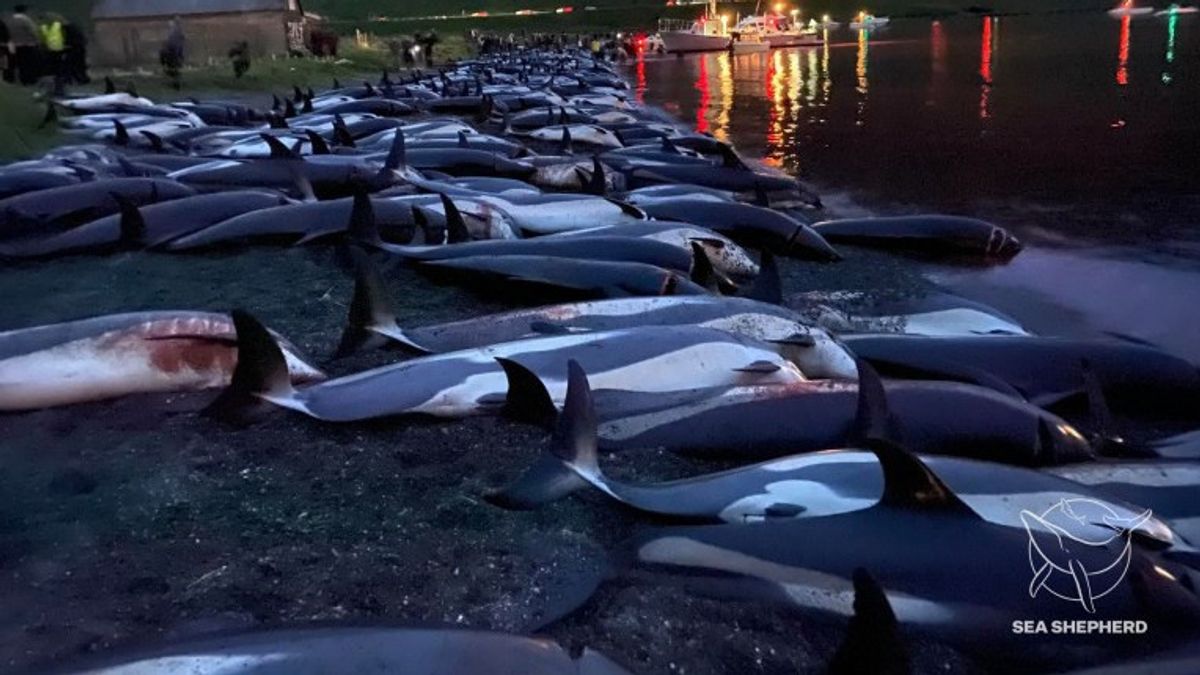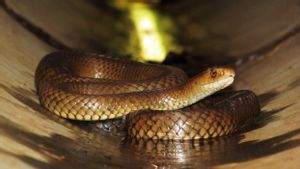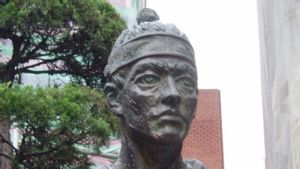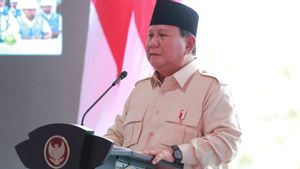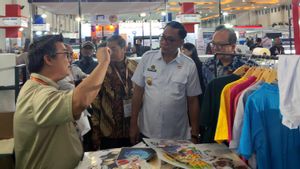JAKARTA - Around 52 dolphins have been slaughtered again in the Faroe Islands, just less than two weeks after the killing of 1,428 dolphins overnight.
The pilot whale was originally intended to be tagged and released as part of a scientific research program, but the island's Natural History Museum said it did not have enough staff to carry out the marking.
Instead of releasing the dolphins back into the sea, the whalers decided to slaughter them.
Valentina Crast, an activist with campaign group Sea Shepherd, said the killing was "unforgivable".
"It seems that the last hunt and the criticism that came after did not make them rethink their behavior. It looks like this was done though," he told Sky News as quoted on September 24.
"Initially they had a scientific research program where they tracked down pilot whales and tracked them down and saw where they were, but because they didn't have enough people to tag them, they decided to kill them. They may cast them out to the ocean, they don't even need to do this at all," she said.
Sea Shepherd shared the footage with Sky News showing the dolphins' bodies after they were killed. The massacre took place on a beach recently licensed to kill pilot whales after 40 years of disuse.
It came after the group released graphic footage showing hundreds of dead animals lying on the beach during the killings on September 19, while others were herded into shallow water by boat and jet ski before being slaughtered.
The murder on Wednesday night September 22 occurred less than 10 km from the coast where 1,428 Atlantic white-sided dolphins were killed.
The slaughter was part of a hunt called Grindadrap which involved animals having their throats cut with a knife. It has been part of the island's traditions since the ninth century, and meat and fat from animals are shared within the community.
Ms. Crast said whalers had been on the hunt despite knowing the pressure placed on them from the international community.
He said the hunted meat would be distributed to those participating and then offered to local people, then sold to restaurants and supermarkets.
SEE ALSO:
The new massacres came after the Faroe Islands government said it would review regulations governing traditional hunting following the "super pod" killings earlier this month.
It said the slaughter was a record, as usually around 250 dolphins and 600 pilot whales are caught each year in Faroese waters.
"We take this issue very seriously. While hunting is considered sustainable, we will take a closer look at dolphin hunting, and what role they should play in Faroese society," Prime Minister Bardur a Steig Nielsen said last Saturday.
The English, Chinese, Japanese, Arabic, and French versions are automatically generated by the AI. So there may still be inaccuracies in translating, please always see Indonesian as our main language. (system supported by DigitalSiber.id)
